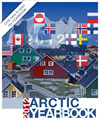Introducing Joël Plouffe
 Joël Plouffe is a Research Fellow at the Raoul-Dandurand Chair of Strategic and Diplomatic Studies at the Université du Québec à Montréal (UQAM). He is also a Canadian Defence & Foreign Affairs Institute Fellow (CDFAI), and is a US State Department International Visiting Program Alumni (IVLP Arctic Security 2012). His research interests and publications deal mainly with the Geopolitics of the Arctic, Regions of the Circumpolar North, Security, Defence, US-Canada Foreign Policy, and International Relations.
Joël Plouffe is a Research Fellow at the Raoul-Dandurand Chair of Strategic and Diplomatic Studies at the Université du Québec à Montréal (UQAM). He is also a Canadian Defence & Foreign Affairs Institute Fellow (CDFAI), and is a US State Department International Visiting Program Alumni (IVLP Arctic Security 2012). His research interests and publications deal mainly with the Geopolitics of the Arctic, Regions of the Circumpolar North, Security, Defence, US-Canada Foreign Policy, and International Relations.
 Mr Plouffe is currently serving as Visiting Professor at the Jackson School for International Studies (JSIS) at the University of Washington in Seattle, where he co-teaches a Task Force on Arctic Security for the 2013 winter quarter.
Mr Plouffe is currently serving as Visiting Professor at the Jackson School for International Studies (JSIS) at the University of Washington in Seattle, where he co-teaches a Task Force on Arctic Security for the 2013 winter quarter.
Mr Plouffe is involved in various northern affairs related research groups and programs. He is a member of the Northern Research Forum Thematic Network on Geopolitics and Security, led by Dr Lassi Heininen from the University of Lapland (Finland); is actively involved in the annual Calotte Academy that takes place in the Barents Euro-Arctic Region; is project member of ArcticNet’s research group on Climate Change and Commercial Shipping in the Arctic, led by Dr Frédéric Lasserre of Université Laval in Québec City (Canada); and is Managing Editor of the Arctic Yearbook.
In August 2012, Joël Plouffe was embedded with Canada’s National Defence and Canadian Forces in the Western Arctic (Northwest Territories) during the annual ‘Operation Nanook’.
Joël Plouffe was born in the mining town of Sudbury, in Northern Ontario, Canada, and is now living in Montréal, Québec where he is working on his PhD thesis at the Department of Political Science of UQAM, looking at how the Arctic has influenced US foreign policy making from the Nixon presidency to President Barack Obama’s first mandate< The interview with Joël Plouffe about the Arctic consists of two other parts as well:
Interview
Mh3>Arctic claims of EU, China and India
Which non-Arctic countries have claimed their stake in the region, and how, and what are their chances of gaining more influence there?
While the flag planting and claiming territory years are behind us (actions that would lead to open armed conflicts between states for territory), non-Arctic states are definitely interested in whatever economic opportunities that might emerge in the region, let it be accessible and profitable shipping routes, accessing oil and gas resources, or promoting extractive activities by their transnational corporations or state owned enterprises in various Arctic countries. Non-Arctic states have a vested interest in Arctic stability and maintaining this space as a ‘zone of peace’. For example, the European Union “recognises the remarkable international cooperation already established between Arctic states and within the different Arctic regional fora. Maintaining good international cooperation in the Arctic region and supporting cooperation in the region’s stability is a key interest of the European Union” (European Commission, 2012), like it has been since the end of the Cold War (through its signing of the Kirkenes Declaration in 1993 and establishing the EU Northern Dimension, for example).
Outsiders to the Arctic region also recognise that the Arctic Council is the main forum for regional cooperation, therefore seek to gain additional influence by participating in the regional dialogue. For example some states like China and India, or organizations of states like the EU, wish to gain observer status inside de AC. Some states like Canada appear reluctant to having more observers integrate the AC (there are currently six AC state Observers: France, Germany, The Netherlands, Poland, Spain and the United Kingdom), arguing that the Arctic Council is fundamentally a forum for regional cooperation between Arctic states and peoples, and that outsiders who wish to influence governance structures of the Arctic could do so in appropriate forums like the UN (for the Law of the Sea) or the International Maritime Organisation (IMO, for shipping). Others disagree with that perspective, stating that world powers like China or the EU should be granted observer status in the AC since they have legitimate interests in the Arctic. In a nutshell, Observers of the AC are invited to the Council’s meetings and activities, have an exclusive access to the Council proceedings, can submit relevant documents to the states and participants, and can also make statements, if granted the right to do so by the Chair of the AC (Arctic states hold revolving two year chairmanships of the 1996). All observer parties like states (i.e. France or Germany) or organisations (like WWF or the Association of World Reindeer Herders) have identical and equal rights, and of course have no voting/veto powers. As of January 2013, there were twelve countries and organizations applying for observer status of the AC: People’s Republic of China; Italian Republic; State of Japan, Republic of Korea; Republic of Singapore; Republic of India; European Union; Oceana; Association of Oil and Gas Producers (OGP); OSPAR Commission; Greenpeace; and the International Hydrographic Organisation (IHO).
I personally appreciate the Gwich’in Council International’s perspective on this issue or debate on the future of the AC, voiced through its Executive Director Bridget Larocque:
“The indigenous peoples appreciate the support offered by Observers of the Arctic Council and recognize that cooperation and collaboration not only advances their work but their indigenous agenda as well. However, as new applications have been submitted, the Permanent Participants’ unwavering message is that prospective Observers clearly demonstrate how their presence will enhance the role and increase the participation of the Permanent Participants in the Arctic Council. The Permanent Participants are very cautious about some applications, as it is not enough to say that Observers will be sensitive to the needs and rights of the indigenous peoples; they also need to show their track record. New Observers have to accept the Arctic Council’s governance structure, as this is the only international forum that guarantees that the voice of the Arctic People gets heard” (Arctic Yearbook, 2012).
Exploration and Exploitation of Arctic Natural Resources
Given the uncertainty regarding climate, hydrocarbons reserves and technological possibilities in the Arctic, what are the most likely scenarios for the exploitation of natural resources in the Arctic?
It all depends on the region we are looking at (access, infrastructure) and the real interest companies have in exploring and eventually extracting hydrocarbons from various areas of the Arctic. At this time, exploration is continuing in the Barents Sea, and increasing in parts of Baffin Bay off Greenland and Canada, the Beaufort, Chukchi and Greenland Seas. This is likely to continue as the world economy seeks new supplies, and companies look for profits. In fact, after investing more than $4 billion dollars over six years to access US Arctic waters, Shell started drilling on the sea floor off Alaska’s North Slope for the first time on 9 September 2012, before trying to push even further north into the waters of the Chukchi Sea. Drilling was halted by Shell on the next day, 10 September 2012: encroaching and threatening sea ice spotted by satellite images forced Shell to shut down its operations and relocate, and eventually start over in the Summer of 2013.
Arctic operations are technically challenging, risky, dangerous and very expensive. Climate change and melting polar sea ice might drive major companies to continue to invest in Arctic exploration, but then again many (economic) factors must be aligned for extraction to happen and to get those resources down to markets in the South. As reminded by Willy Østreng, “indications are that harvesting of these resources may not happen as fast and on such a scale as many observers seem to take for granted, at least not in the immediate to medium term future. Development of new production sites takes time, up to 30 years of completion” (Østreng, 2012:275).
Environmental concerns will continue to make such exploration very perilous for any company determined to ‘risk it North’ and try to tap Arctic oil and gas resources. The French transnational corporation, Total, who is one of those rare companies like Shell, Statoil or BP that have cold weather hydrocarbon extraction expertise and export technologies for that industry, has warned in 2012 against oil drilling in the Arctic (while continuing its gas ventures in Russian and Norwegian waters). The US government has recently launched a review of Shell’s Arctic drilling programme, following a series of mishaps in the Far North, like the grounding of one of its floating drill rigs, the Kulluk, off the coast of Alaska on New Years eve 2012. While exploration continues to happen every summer (it has been going on for decades in the Arctic), profits from offshore drilling in the Arctic are still unknown of (except maybe for Statoil’s offshore LNG operations at Snøvhit in the Norwegian Sea). The Barents Sea is definitely an area to watch closely for emerging offshore extractive activities in the coming years.
The other parts of the interview with Joël Plouffe
Please have a look at these pages for more insights of Joël Plouffe into the Arctic:
Joël Plouffe: Arctic Council, Circumpolar Governance, Environmental Cooperation
Joël Plouffe: Arctic Disputed Maritime Boundaries, Norway-Russia Border Treaty
